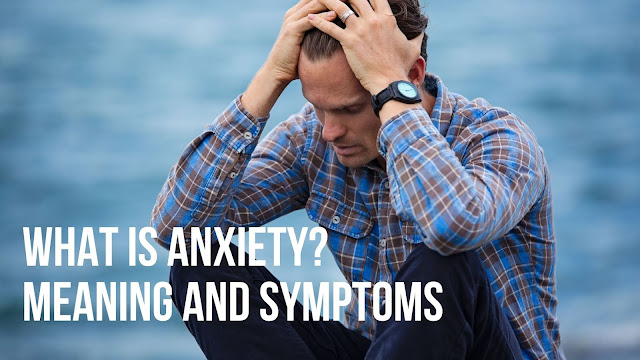What Is Anxiety?
Anxiety is your body's normal reaction to stress. It can be a feeling of worry, fear, or unease.
Do you feel anxious before a dental visit or starting something new? Have you gotten the jitters before speaking in front of a large group? Do you sometimes get sweaty palms when thinking about the future?
These are common reactions when faced with something that's scary or unfamiliar and it doesn't necessarily mean that anything is wrong.
However, some people suffer from a more severe form of anxiety that causes more serious physical symptoms which can interfere with their daily activities. The feelings of fear and unease are often intense, repeated, and out of proportion to the actual danger. These are called anxiety disorders.
To better understand if your anxious feelings could be a sign of anxiety or panic disorder, let's take a look at some of the symptoms.
What Are The Symptoms of Anxiety Disorders?
1. If you feel your heart is racing and you can't breathe properly, this can be a symptom of anxiety that is severe enough to get professional help.
2. Some people have uncontrollable fears of things like crowded places, driving, or germs that make them completely avoid some places or situations.
3. The consistent inability to concentrate can be a symptom of anxiety. This must be consistent behavior, and not just on those occasions when you lack sleep or are hungry for instance.
4. Nervous behaviors, such as walking around the same area over and over again or twitching your fingers and toes repetitively can be a symptom.
5. A feeling of doom or that something bad will happen to you, such as an accident, heart attack, or even death, can be symptoms of an anxiety disorder or panic disorder.
6. Numbness in your hands, fingers, toes, and legs or feeling like you can't stand are also common symptoms.
7. If you find you have trouble swallowing or unusual dry mouth episodes, these may be indications of anxiety.
8. Fear of people around you and the desire to be alone are feelings that many anxiety sufferers face.
9. The inability to leave your home can be a symptom of severe anxiety or panic disorder.
10. If your normal activities become overwhelming to you, you could be suffering from anxiety or a panic disorder.
The good news is these symptoms and conditions are no longer thought of as being something people shouldn't reveal or talk about. There is help for you if you suffer from anxiety.
Many mental health clinics and hospitals offer affordable help if you are on a lower or fixed income. Your health insurance may help you get treatment, and they cannot reveal your medical treatment to your employer.
As scientists and the medical world become more informed about these disorders, more medications, and other forms of relief are found to be effective in treating them. Relaxation techniques are very effective and can even be done at home or in the workplace.
Understanding your situation can help you alleviate the stress and fear these panic attacks cause. It will also help you and your healthcare provider find a solution to stopping the attacks altogether. Living in fear of another panic attack will hold you hostage and prevent you from doing the things you love.
If you suffer from some of the symptoms above, seek help from a professional. Get the treatment you need to get you back on the road to peace, health, and happiness. You will be glad
I






